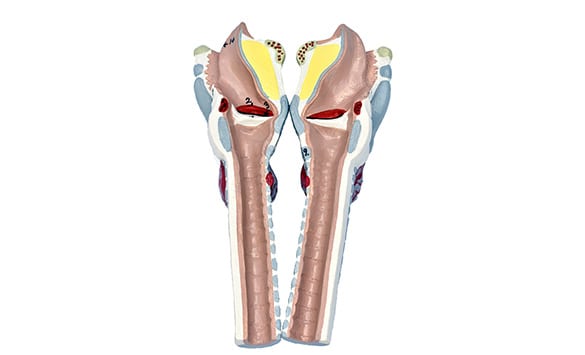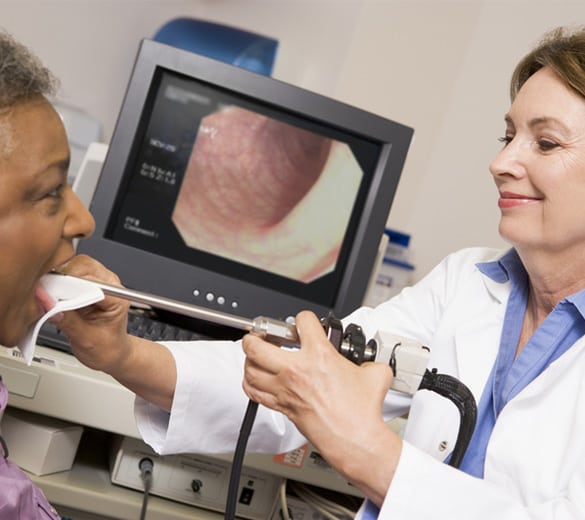
Our specialists can help you manage aging voice.
The human voice first changes during puberty when the voice box (larynx) grows larger and thicker. More evident in boys, a maturing voice also develops in girls as they reach adulthood. It’s not until later in the life that the voice begins to noticeably change again, usually when you get into your sixties or seventies.
- Gradual, age-related changes to vocal tone and quality are perfectly normal.
- However, it never hurts to check with an ear, nose, and throat doctor to rule out other possible causes of a shift in vocal tone, especially it occurs fairly suddenly.
Why Voices Change with Age
Most people have a voice that remains fairly consistent from puberty into later years of life. It’s hormone-related changes that cause cracking and other vocal changes during adolescence. Aging voice, on the other hand, is primarily caused by a reduction in muscle mass, which causes mucous membranes to become thinner and drier. There’s also a slight loss of elasticity in vocal tissues that sometimes affects the level of control you can have over your vocal fold movements. Similar changes occur in the larynx. It’s a process some ENT specialists refer to as vocal cord atrophy or presbylaryngis.


Common Signs of an Aging Voice
As the voice ages, men may develop a voice that has higher inflections or tones. Women may notice a voice with deeper or richer tones. Signs associated with an aging voice might also include:
- Decreased ability to project your voice (a “thin” voice)
- Increased vocal tiredness where you voice fades off in mid-use
- Difficulty projecting your voice to be heard in crowds or in nosier environments
- Tremors or a noticeable shakiness in your voice as you speak
Signs Suggesting Other Vocal Problems
It’s also possible to have sudden issues with recurring hoarseness or other vocal difficulties around the time when your voice is starting to be affected to age-related changes. However, changes of this nature are not typically associated with an aging voice. If you are experiencing such issues in combination with adjustments to vocal tone and quality, it’s best to see an ear, nose, and throat doctor to find out why.
What to Do If It Bothers You
The first step to take if you are bothered by an aging voice is to get a thorough examination of your throat and vocal cords. This process may involve a laryngoscopy. It’s a visual evaluation of your throat and voice box that’s done with a small mirror, a flexible telescope, or a lighted tube called a laryngoscope. If no structural issues or soft tissue damage is discovered, you may be advised to work with a speech-language pathologist. If vocal steadiness or other issues with vocal quality are affecting your quality of life, surgery may become an option. This will be determined on an individual basis.
Even world-famous singers who frequently use their voices eventually develop a more mature sound as they get older that sometimes includes an inability to comfortably sing within certain ranges. Of course, you don’t have to be a professional singer to take steps to make age-related vocal changes less noticeable. For example, you can keep your vocal folds healthy by avoiding excessively spicy or acid foods, managing allergies, and doing simple vocal or breathing exercises on a regular basis.


